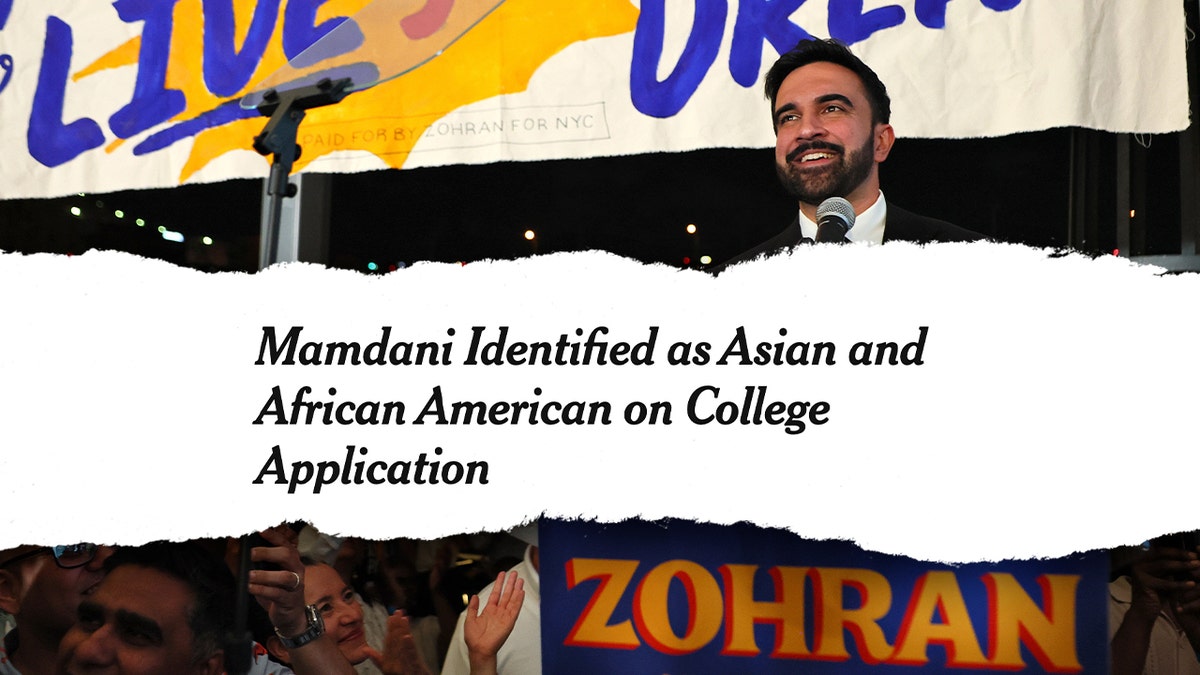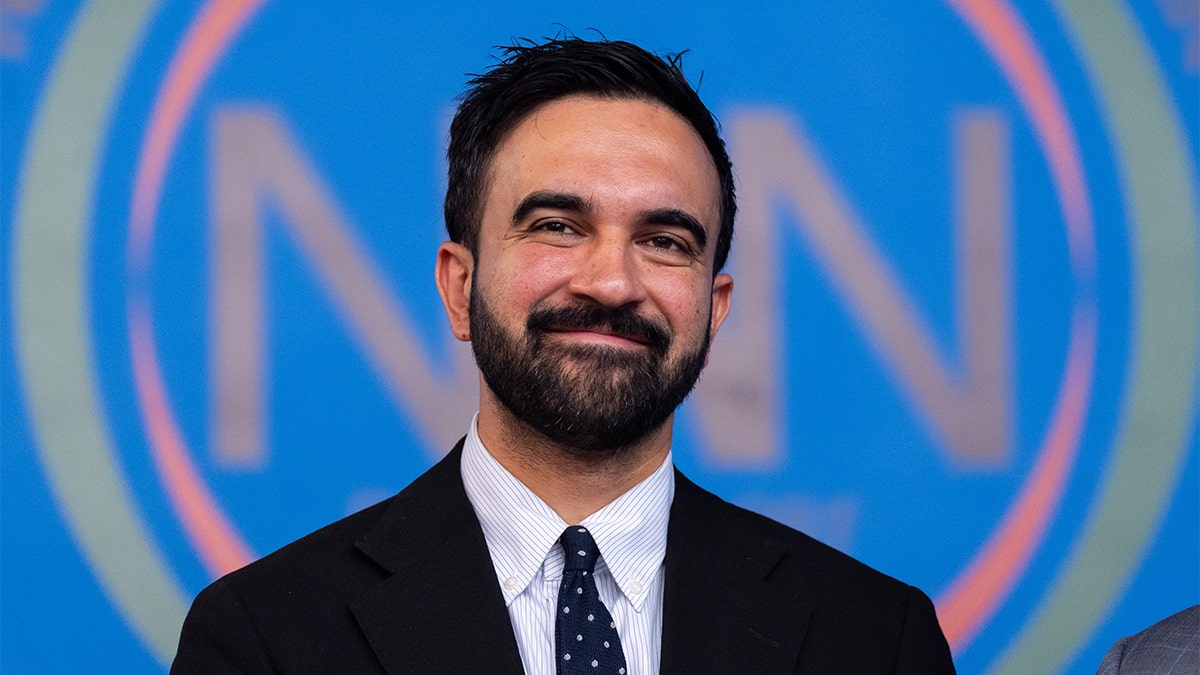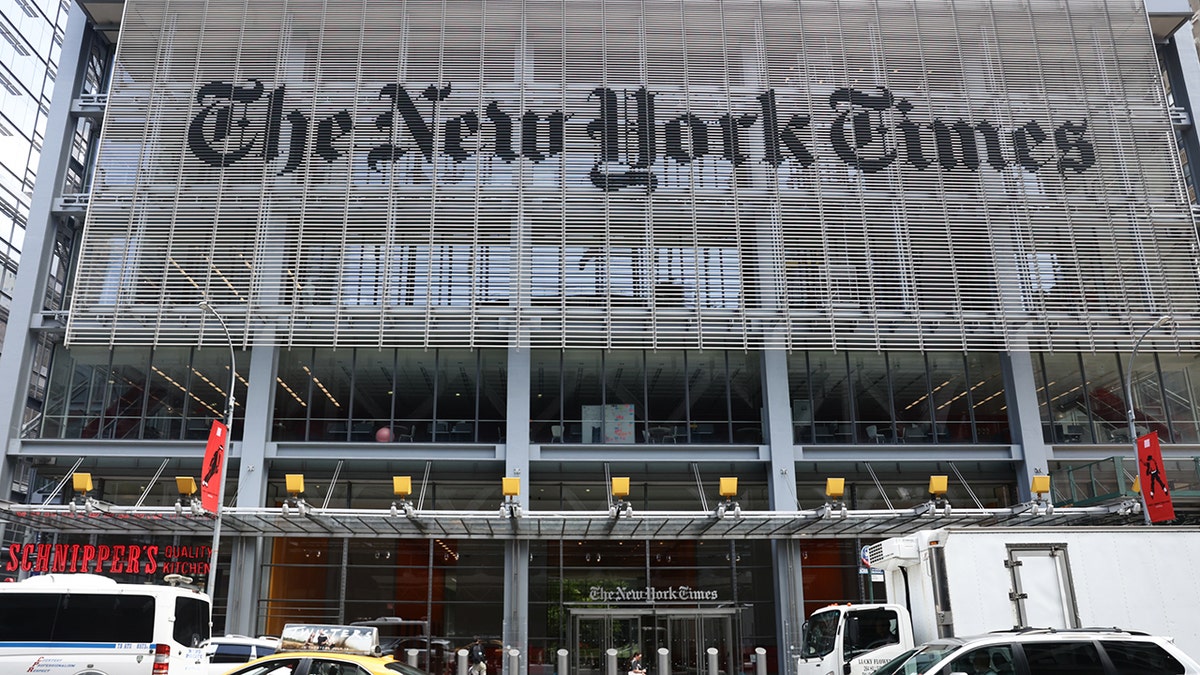

The New York Times was forced to spend the Fourth of July holiday defending an unflattering report about Zohran Mamdani against the outrage of its liberal readers.
The Times reported Thursday that the socialist New York City mayoral candidate, who shocked the nation by clinching the Democratic nomination late last month, checked off that he was both "Asian" and "Black or African American" on his 2009 college application to Columbia University. Mamdani is of Indian descent and was born in Uganda.
"Most college applications don’t have a box for Indian-Ugandans, so I checked multiple boxes trying to capture the fullness of my background," Mamdani told the Times.
The revelation of Mamdani's college application came from hacked Columbia University documents that were shared with the Times.
NY TIMES ADDRESSES BACKLASH OVER REPORT ON NYC MAYORAL CANDIDATE MAMDANI'S COLLEGE APPLICATION

The New York Times published a report on Thursday about Zohran Mamdani's Columbia University college application. (Photo by Michael M. Santiago/Getty Images, NYT)
The backlash from the left against the Times was swift, blasting the paper for going out of its way to make Mamdani's college application a story and for relying on a source only identified by an anonymous social media username, whom the Times described as "an academic who opposes affirmative action."
"Scoop of the century here that a man from Africa with South Asian heritage said so on his college application. They put 3 authors on the byline for this trash fed to them by a eugenicist," reacted "Breaking Points" co-host Krystal Ball.
Former CNN anchor Soledad O’Brien called the report "pathetic," adding, "Also good indication that the @nytimes needs to hire more multi-racial people so maybe this stuff will make sense to you guys."
There has also been internal strife at the Gray Lady.
"People are really upset," one Times journalist told Semafor.
New York Times columnist Jamelle Bouie lashed out at the report, writing on the liberal-centric platform Bluesky, "I think you should tell readers if your source is a nazi."
Bouie even attacked contributing Times reporter Benjamin Ryan, who had the lead byline on the Mamdani report, suggesting Ryan has "little to no actual brain activity" and that it's "no surprise that one of the biggest dumbasses in journalism is involved in this." Bouie later took down the posts, saying they "violated Times social media standards."
Meanwhile, Times columnist Lydia Polgreen sympathized with Mamdani, writing on X, "I can see why a political young man like Zohran might fill out his college application the way he did. Because if you are like me, you struggle to be known in this country. Our visual sorting is so simplistic and quite brutal."

Zohran Mamdani, New York City mayoral candidate, during a campaign event at the NAN House of Justice in the Harlem neighborhood of New York, US, on Saturday, June 28, 2025. (Photographer: Adam Gray/Bloomberg via Getty Images)
The controversy mounted so much so that Patrick Healy, the paper's assistant managing editor for Standards and Trust, issued a lengthy July 4 statement responding to the "reader feedback."
"Our reporters obtained information about Mr. Mamdani’s Columbia college application and went to the Mamdani campaign with it. When we hear anything of news value, we try to confirm it through direct sources. Mr. Mamdani confirmed this information in an interview with The Times," Healy wrote Friday. "We believe Mr. Mamdani’s thinking and decision-making, laid out in his words, was newsworthy and in line with our mission to help readers better know and understand top candidates for major offices."
Healy went on to defend running with the hacked material while keeping the source anonymous, adding, "We heard from readers who wanted more detail about this initial source. That’s fair feedback. We printed his online alias so readers could learn more about the person. The purpose of this story was to help illuminate the thinking and background of a major mayoral candidate."
However, liberals on X continued hammering the Times.
"The @nytimes continues its self-invalidation tour…" former New York City Mayor Bill de Blasio said. "How many Ivy League degrees does it take for you to figure out Uganda is in Africa?"
"Your absolute abrogation of the NYT standards would in a better era there have led the full range of you in management to resign. Utter failure," wrote ex-MSNBC host Keith Olbermann. "Then again, if you don't realize NYT is perceived as actively campaigning against Mamdani, you're all lost anyway."
Meanwhile, conservative critics accused Healy of "groveling" and offering an apology-like statement.
"Stop apologizing for saying something critical of a Democrat," top Trump ally Richard Grenell reacted to Healy. "Your problem is that you have thin-skin and too many lefty readers. You aren’t an outlet for everyone - you are an outlet for just the left."

The New York Times has faced intense backlash from the left over its Mamdani report. (Photo by Jakub Porzycki/NurPhoto via Getty Images)
It was also revealed Sunday by Times insiders that the paper rushed its Mamdani report to avoid getting scooped by conservative activist Christopher Rufo. Rufo offered his "kudos" to the Times on X.
"We publish stories once newsworthy information is confirmed and our reporters and editors have completed their work," a spokesperson for The New York Times spokesperson told Fox News Digital. "That was the case with this story; we went to Mr. Mamdani, he confirmed our information as true, and our colleagues had done thorough reporting. We don't hit publish because others may be working on a story."
The New York Times is no stranger to the left's viral outrage machine, which erupted in 2020 over the now-infamous "Send in the Troops" op-ed penned by Sen. Tom Cotton, R-Ark., in response to the George Floyd riots. The op-ed sparked intense uproar among its staffers and resulted in multiple personnel changes and a giant mea culpa from the paper.
Bari Weiss, who resigned from The Times in protest and has since founded The Free Press, penned in her exit letter that "Twitter is not on the masthead of The New York Times. But Twitter has become its ultimate editor."
"As the ethics and mores of that platform have become those of the paper, the paper itself has increasingly become a kind of performance space. Stories are chosen and told in a way to satisfy the narrowest of audiences, rather than to allow a curious public to read about the world and then draw their own conclusions. I was always taught that journalists were charged with writing the first rough draft of history. Now, history itself is one more ephemeral thing molded to fit the needs of a predetermined narrative," Weiss wrote.
Fox News Digital’s Marc Tamasco and Hanna Panreck contributed to this report.
